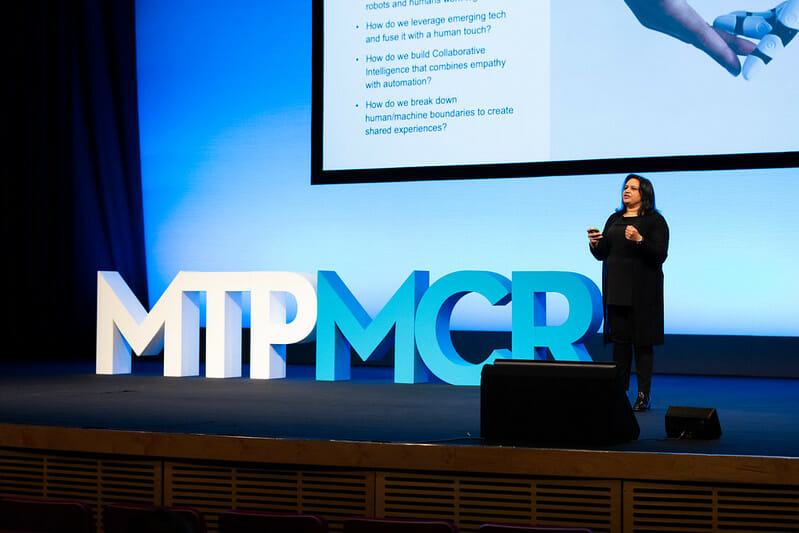After redundancy in 2023, I spent six painful months trying and failing to secure my next product job. I had six years’ experience and a good CV. So why would no one hire me? Here’s what I wish I had known:
Don’t expect the hiring team to find your CV without a lot of help.
Your CV might be a perfect match for the role or even surpass the job requirements, but it will likely get lost among the 100 other CVs submitted once the job goes live.
It goes without saying that you should also write a cover letter which specifies exactly why you are a great match.
But, to really be seen, you need to go even further. Send one further message to the hiring manager directly, elaborating on a few more core reasons why you are perfect for this role and company.
It’s a lot of work, but that’s what it takes.
I had a 40% response rate to job applications. After changing to this approach, it increased to 60%, often with an invite to interview or a clear explanation of why I wasn’t quite right, rather than the generic automated reply.
Find the hiring team member’s name on the LinkedIn job posting. If it’s not there, search the company’s People section for ‘Talent’ and see who last posted a product or tech job. To message them, you may need to do some detective work to guess their email address. Clue: it’s usually name.surname@company.com.
It can take four weeks to hear back from a job application. Sometimes longer. Often you won’t hear back at all.
It’s another week before the hiring team has a free screener slot.
It’s an additional few days before they confirm your progression to the next round, and another week before the hiring manager is free.
Then there’s the task and a meeting to present it, and perhaps one more scheduled interview after that to meet the wider team. Time adds up quickly. Application to offer (or rejection) can take a long time. Many of my processes lasted two months.
Factor this in. Nothing will happen overnight.
Make sure you are financially and emotionally capable of waiting that long. Try to organise other interviews for the downtime in your current process. Likewise, set yourself a few non-work related goals and find healthy distractions where possible to avoid burnout.
This was the biggest mistake I made. I had six years’ experience, knew my stuff and often presented to C-suite execs. So I wasn’t nervous in interviews.
However, I wasn’t shining in them either. I consistently let myself down by not communicating that experience and knowledge clearly.
I tried to squeeze in as much information as possible, and waffled as result. Or I relied on my ability to think on my feet when answering common product interview questions, like ‘How would you improve your favourite product?’ or ‘Tell me about a time you had to overcome a disagreement with a stakeholder’.
I thought thinking on your feet was the point. But other candidates prepared, and it showed when I never got past the second round.
Everything changed when I discovered Diego Granados’s YouTube channel. By using his frameworks, I could isolate and piece together the most relevant experiences into great, concise answers.
See Diego’s videos on STAR method, product behaviour questions, and diagnosing product problems. They won’t just help your job hunt, they’ll help your product career.
I WISH I had discovered this earlier. My job hunt was one of the most dismal periods of my life. I’d spend all day trawling job boards, firing off applications and obsessively refreshing Gmail only to receive rejections or, more often than not, no reply at all.
My self-esteem was at an all-time low. I burned out multiple times.
Since only wins are shared on LinkedIn, it seemed like it was just me who couldn’t land a job. And worst of all, it felt like it would never end.
Never Search Alone is a great, practical book by Phyl Terry, detailing a Marty Cagan-approved approach to finding a job as a collective. You are matched with a group of other seekers to help you find the right roles, prepare for interviews, and negotiate an offer.
It was a relief to share my job-seeking journey with smart, helpful people experiencing the same challenges.
Joining a Job Search Council will be my first step in any future career move.
In the all-consuming struggle of the job search, it’s very easy to lose your patience with people.
Perhaps they’re moving too slowly or they’ve left you on read. Maybe they change the job spec two rounds in or turn you down for a completely irrelevant reason.
It happens. And you’ll want to tell that person exactly what you think. But the product community is not that big. Chances are you’ll cross paths again.
Be gracious when rejected. Be persistent without being rude. You have no idea what’s going on in their world. Always leave the door open to future opportunities.
In my search, the recruiter who wasn’t able to help me at the beginning was the one who landed me a job at the end. He’d moved in-house and his new employer was hiring. He knew exactly who to call.
It’s easy to turn to despair. Will I ever find a job? Am I even a good product manager? Do I need to change professions? What the hell am I going to do?
But each rejection is a learning experience. Each process is an opportunity to improve as a product person. When else will you learn so much about multiple products, their markets, and prepare detailed plans to improve them? You will enter the next process an improved candidate.
You will also have a much better idea what the product job market wants. Use this time to up skill on those areas with free online courses (I recommend Pendo’s courses with Mind the Product). Volunteer your skills to those who need it (check out catchafire.org). Start a side hustle.
Treat this time as an opportunity to become a better product manager for whoever is lucky enough to hire you next.
After six months, I landed a role at a great company with a great product culture. There’s no way I would have got the job if we’d met at the beginning of my search. Securing it was the result of everything I’d learned along the way.







